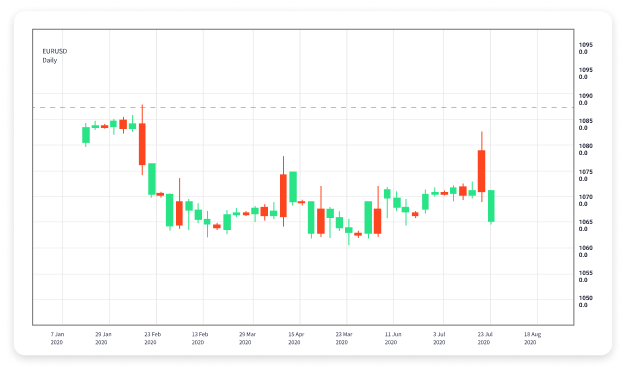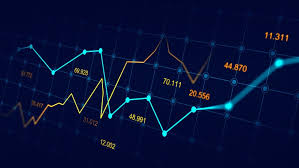The Role of Forex Trading Software Developers in Modern Trading 1911723282

The world of forex trading is rapidly evolving, with advanced technologies shaping the way traders operate in the global market. In this dynamic landscape, the role of forex trading software developer Trading Vietnam has become more critical than ever. These professionals create the tools that traders rely on to execute their strategies, analyze market trends, and build effective trading systems. In this article, we will explore the essential functions of forex trading software developers, the technologies they use, and how their contributions are transforming the forex trading arena.
The Significance of Forex Trading Software Developers
Forex trading software developers bridge the gap between financial markets and technology. They create and maintain platforms that allow traders to access market data, execute trades, and manage their portfolios efficiently. These developers must possess a deep understanding of both programming languages and the intricacies of trading, as they need to create solutions that meet the various needs of traders—from beginners to seasoned professionals.
Key Responsibilities of Forex Trading Software Developers
Forex trading software developers are responsible for various tasks that ensure the functionality, security, and adaptability of trading platforms. Some of their critical responsibilities include:
- Designing User-Friendly Interfaces: A significant part of a trader’s experience hinges on how they interact with a platform. Developers must design intuitive interfaces that provide easy navigation and access to essential tools.
- Integrating Real-Time Market Data: Traders require real-time information to make informed decisions. Developers must create systems that aggregate and display live market data while ensuring accuracy and speed.
- Implementing Trading Algorithms: Many traders employ algorithms and automated trading strategies to take advantage of market opportunities. Developers need to build and optimize these algorithms for various trading styles.
- Ensuring Security: Security is paramount in trading software. Developers must implement encryption protocols and other security measures to protect user data and transactions from cyber threats.
- Testing and Debugging: Continuous testing and debugging are vital to maintain software integrity. Developers must regularly update systems to fix bugs, enhance functionality, and improve overall performance.

Technologies Used by Forex Trading Software Developers
The development of forex trading software encompasses various technologies and programming languages. Proficient developers typically use a combination of the following:
- Programming Languages: Common languages include Python, Java, and C#. Python is particularly favored for its simplicity and the rich ecosystem of libraries that facilitate data analysis and machine learning.
- Frameworks: Frameworks such as Django and Flask are often utilized to build robust and scalable web applications. These frameworks streamline the development process and enhance productivity.
- APIs: Application Programming Interfaces (APIs) play a crucial role in enabling seamless communication between different components of a trading system, such as price feeds, execution systems, and user interfaces.
- Database Management: Developers often use relational databases like MySQL or NoSQL databases like MongoDB to store and manage user data, trade histories, and market information efficiently.
- Cloud Computing: With the rise of cloud hosting providers, developers can create scalable solutions that accommodate large volumes of trades and data without compromising performance.
The Impact of Technology on Forex Trading
Technology has significantly influenced how trading occurs in the forex market. With the advent of high-frequency trading (HFT) and algorithmic trading, software developers are at the forefront of this transformation. They create algorithms that can process vast amounts of data in milliseconds, allowing traders to make decisions quickly and take advantage of fleeting market opportunities.
Moreover, the development of mobile trading applications has made forex trading accessible to anyone with a smartphone. This democratization of trading is largely due to the efforts of software developers who create responsive designs and ensure that trading platforms function seamlessly across devices.
Challenges Faced by Forex Trading Software Developers

Despite the exciting opportunities in this field, forex trading software developers face several challenges:
- Market Volatility: The forex market is incredibly volatile, and developers must ensure that their systems can handle sudden changes in market conditions without crashing or providing inaccurate information.
- Regulatory Compliance: Trading software must comply with various regulations imposed by financial authorities. Developers need to stay informed about changes in regulations to maintain compliance and avoid penalties.
- Cybersecurity Threats: As trading becomes more digitized, the risks associated with cyber-attacks increase. Developers must remain vigilant and implement the latest security measures to protect platforms.
- Technological Advancements: The rapid pace of technological change means that developers must continuously learn and adapt to new tools and paradigms, ensuring that they remain competitive in the field.
The Future of Forex Trading Software Development
Looking ahead, the future of forex trading software is promising. Emerging technologies such as artificial intelligence (AI) and machine learning are set to revolutionize the industry by enhancing predictive analytics and automating trading strategies. Developers who embrace these technologies will be well-positioned to create innovative solutions that cater to the evolving needs of traders.
Moreover, the integration of blockchain technology has the potential to enhance transparency and security in trading, presenting new opportunities and challenges for developers. As these technologies mature, developers will play a pivotal role in shaping the future landscape of forex trading.
Conclusion
Forex trading software developers are essential to the ongoing evolution of the forex market. Their expertise in technology, coupled with a deep understanding of trading, allows them to create advanced tools that empower traders to succeed in a highly competitive environment. As technological advancements continue to reshape the industry, the demand for skilled forex trading software developers will only grow. Traders and institutions that leverage these technological innovations will be better equipped to navigate the complexities of the forex market and achieve their financial goals.